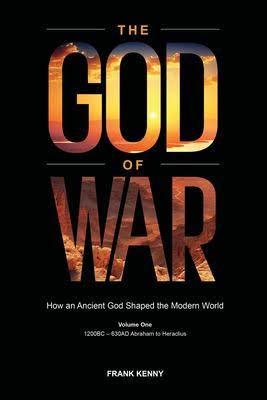Saturday, November 2, 2024
The God of War
Abrahamic religions have shaped the modern world. In the age of globalization, the monotheistic belief systems of Judaism, Christianity, and Islam have an outsized influence across the globe. Religious researcher and historian Frank Kenny, in his book "The God of War," offers a unique perspective on the wars and conflicts throughout time that influenced the development of Christian doctrine, church history, and the role of religion in people’s lives. Kenny's work stands out for its comprehensive exploration of the geopolitical and religious dynamics of the region, highlighting the influence of various empires and the spread of monotheistic religions.
Through a critical analysis of Biblical accounts, he presents a thorough and nuanced analysis of the theological developments and debates within early Christianity. The author discusses the development of the concepts of the nature of God, the divinity of Jesus, the Kingdom of God, and salvation. Kenny thoroughly explores the persecution of Christians by Roman authorities and the development of a “martyrdom cult,” a part of the early Christians' responses to religious oppression.
“The God of War” is an apt title for a book that delves into the enduring legacy of religious and political conflicts. These conflicts, which contributed to the fall of the Roman Empire, have given rise to new powers and persistent divisions within Christianity. Kenny's objective stance on scripture and the gospel, presented in an engaging style, is a catalyst for critical thinking about the interplay between religion, politics, and society.
My interest in the book stems from my lifelong critique of Christianity from a decolonial perspective. I sincerely appreciate Kenny’s factual approach to presenting Biblical conflicts from a historical perspective and showing how war and conflict have defined the modern era. History enthusiasts, academics, and anyone curious about the interplay of political and religious dynamics would find value in the book. For Christians, the book offers a respectful invitation to engage with the text, fostering an attitude of learning about different perspectives and interpretations of history.
Subscribe to:
Post Comments (Atom)

No comments:
Post a Comment